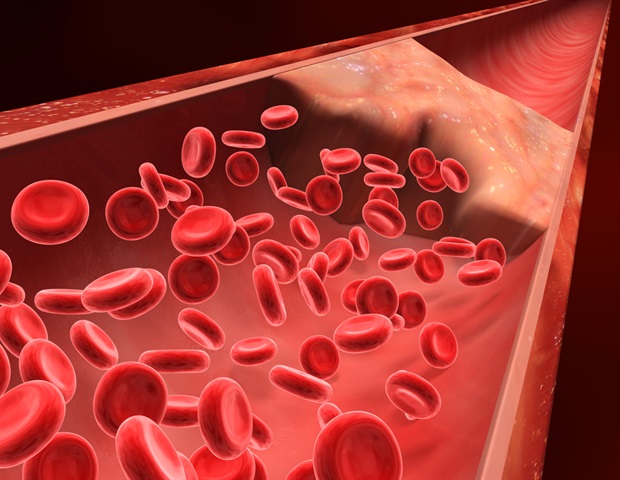Blood thinners prescribed after blood clots in leg or lung initially increase the risk of bleeding, especially in women and elderly.
Vous n'êtes pas connecté
- English
- Français
- عربي
- Español
- Deutsch
- Português
- русский язык
- Català
- Italiano
- Nederlands, Vlaams
- Norsk
- فارسی
- বাংলা
- اردو
- Azərbaycan dili
- Bahasa Indonesia
- Հայերեն
- Ελληνικά
- Bosanski jezik
- українська мова
- Íslenska
- Türkmen, Түркмен
- Türkçe
- Shqip
- Eesti keel
- magyar
- Қазақ тілі
- Kalaallisut ; kalaallit oqaasii
- Lietuvių kalba
- Latviešu valoda
- македонски јазик
- Монгол
- Bahasa Melayu ; بهاس ملايو
- ဗမာစာ
- Slovenščina
- тоҷикӣ ; toğikī ; تاجیکی
- ไทย
- O'zbek ; Ўзбек ; أۇزبېك
- Tiếng Việt
- ភាសាខ្មែរ
- རྫོང་ཁ
- Soomaaliga ; af Soomaali
 Maroc - KNOWRIDGE.COM - A La Une - 15/Feb 11:11
Maroc - KNOWRIDGE.COM - A La Une - 15/Feb 11:11
Bleeding risk from blood thinner drugs decreased over time
A new study from the University of Gothenburg reveals that blood thinners, commonly prescribed after blood clots in the leg or lung, increase the risk of bleeding in the early months of treatment. However, this risk gradually decreases over time, and differences in bleeding risk between men and women, as well as between younger and […] The post Bleeding risk from blood thinner drugs decreased over time appeared first on Knowridge Science Report.
Articles similaires
Scientists find similar bleeding risks of blood thinners and aspirin
A new study has found that the risk of serious bleeding is similar when taking the blood thinners apixaban and dabigatran compared to aspirin....
Dementia: why prescription drugs like antibiotics and vaccines have been linked to lower risk of the disease
There’s currently no cure for dementia. Although some recently developed drugs show promise in slowing the progress of the disease, these are both...
These common drugs linked to higher risk of memory loss
A new study from the University of California, San Diego has found that a common class of drugs may increase the risk of cognitive decline,...
This is the key to reducing heart attack and death risk in diabetes
A study from the Universities of Gothenburg and Oxford highlights the critical importance of controlling blood sugar levels immediately after a type 2...
Lung signals trigger blood clot formation in cancer patients
Blood clots form in response to signals from the lungs of cancer patients—not from other organ sites, as previously thought—according to a...
Aortic Dissection: Origin, Causes, Precautions And Treatment – OpEd
An aortic dissection is a serious medical condition in which the inner layer of the aorta (the large blood vessel that branches off the heart)...
Many Americans still take daily aspirin despite bleeding risks
For years, doctors advised healthy older adults to take a daily low-dose aspirin to help prevent heart attacks. However, in 2019, the American...
Obesity and medication: When does bodyweight matter?
How can we best treat infectious diseases in people with obesity? Hospital pharmacist and Ph.D. researcher Koen van Rhee studied how obesity affects...
These personality traits may help prevent Alzheimer’s disease
Alzheimer’s disease is the most common cause of dementia in older adults. It is a brain disorder that slowly destroys memory and thinking skills....
Les derniers communiqués
-
Aucun élément








